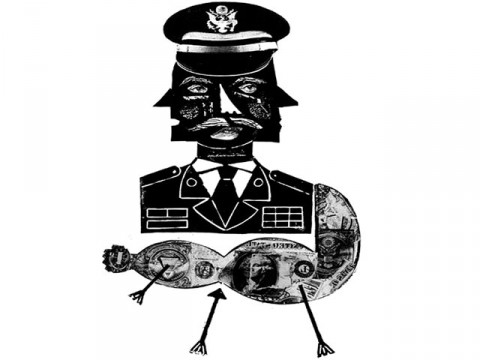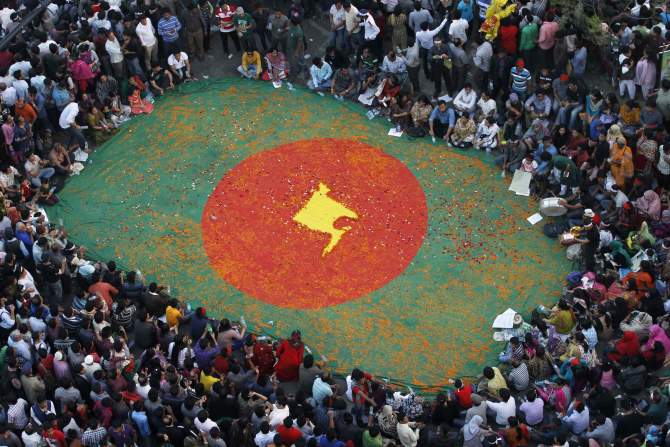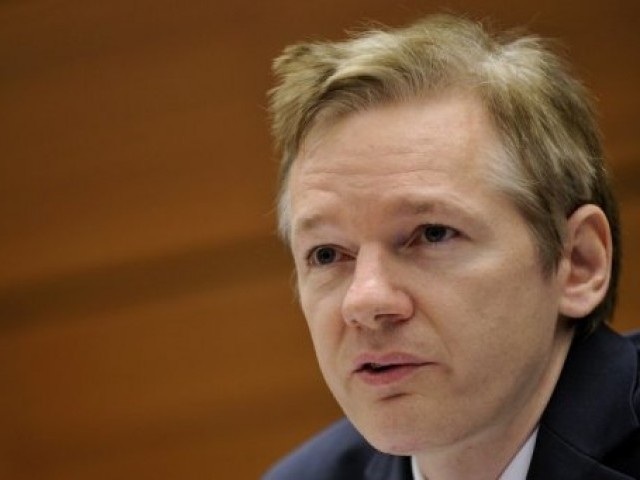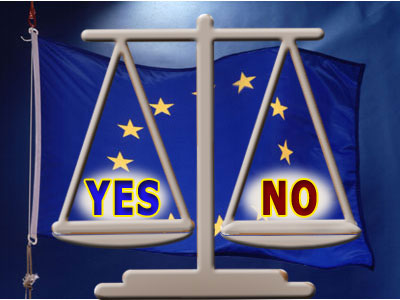- Web
- Humsa
- Videos
- Forum
- Q2A



Everyone talks about getting out of Iraq and Afghanistan. But what about Germany and Japan? The sequester - $85 billion this year in across-the-board budget cuts, about half of which will come from the Pentagon - gives Americans an opportunity to discuss a question we’ve put off too long: Why we are still fighting World War II?
Since 1947, when President Harry S Truman set forth a policy to stop further Soviet expansion and “support free peoples” who were “resisting subjugation by armed minorities or by outside pressures,” America has acted as the world’s policeman.For more than a century, Britain had “held the line” against aggression in Eurasia, but by World War II it was broke. Only two years after the Allies met at Yalta to hammer out the postwar order, London gave Washington five weeks’ notice: It’s your turn now.
The Greek government was battling partisans supplied by Communist Yugoslavia. Turkey was under pressure to allow Soviet troops to patrol its waterways. Stalin was strong-arming governments from Finland to Iran.Some historians say Truman scared the American people into a broad, open-ended commitment to world security. But Americans were already frightened: in 1947, 73 per cent told Gallup that they considered World War III likely.
From the Truman Doctrine emerged a strategy comprising multiple alliances: the Rio Pact of 1947 (Latin America), the Nato Treaty of 1949 (Canada and Northern and Western Europe), the Anzus Treaty of 1951 (Australia and New Zealand) and the Seato Treaty of 1954 (Southeast Asia). Seato ended in 1977, but the other treaties remain in force, as do collective-defense agreements with Japan, South Korea and the Philippines. Meanwhile, we invented the practice of foreign aid, beginning with the Marshall Plan.
It was a profound turn even from 1940, when Franklin D Roosevelt won a third term pledging not to plunge the United States into war. Isolationism has had a rich tradition, from Washington’s 1796 warning against foreign entanglements to the 1919 debate over the Treaty of Versailles, in which Henry Cabot Lodge argued, “The less we undertake to play the part of umpire and thrust ourselves into European conflicts the better for the United States and for the world.”
World War II, and the relative impotence of the United Nations, convinced successive administrations that America had to fill the breach and we did so, with great success. The world was far more secure in the second half of the 20th century than in the disastrous first half. The percentage of the globe’s population killed in conflicts between states fell in each decade after the Truman Doctrine. America experienced more wars (Korea, Vietnam, the two Iraq wars, Afghanistan) but the world, as a whole, experienced fewer.
We were not so much an empire - the empire decried by the scholar and veteran Andrew J Bacevich and celebrated by the conservative historian Niall Ferguson - as an umpire, one that stood for equal access by nation-states to political and economic gains; peaceful arbitration of international conflict; and transparency in trade and business.
But conditions have changed radically since the cold war. When the United States established major bases in West Germany and Japan, they were considered dangerous renegades that needed to be watched. Their reconstructed governments also desired protection, particularly from the Soviet Union and China. Nato’s first secretary general, Hastings Ismay, famously said the alliance existed “to keep the Russians out, the Americans in, and the Germans down.”
Today, our largest permanent bases are still in Germany and Japan, which are perfectly capable of defending themselves and should be trusted to help their neighbors. It’s time they foot more of the bill or operate their own bases. China’s authoritarian capitalism hasn’t translated into territorial aggression, while Russia no longer commands central and eastern Europe. That the military brass still talk of maintaining the capacity to fight a two-front war - presumably on land in Europe, and at sea in the Pacific - speaks to the irrational endurance of the Truman Doctrine.
Our wars in the Middle East since 2001 doubled down on that costly, outdated doctrine. The domino theory behind the Vietnam War revived under a new formulation: but for the American umpire, the bad guys (Al Qaeda, Iran, North Korea) will win.Despite his supporters’ expectations, President Obama has followed a Middle East policy nearly identical to his predecessor’s. He took us out of Iraq, only to deepen our commitment to Afghanistan, from which we just now pulling out.
He rejected the most odious counterterrorism techniques of George W Bush’s administration, but otherwise did not change basic policies. Mr Obama’s gestures toward multilateralism were not matched by a commensurate commitment from many of our allies.Cynics assert that the “military-industrial complex” Dwight D Eisenhower presciently warned against has primarily existed to enrich and empower a grasping, imperialist nation.
But America was prosperous long before it was a superpower; by 1890, decades before the two world wars, it was already the world’s largest and richest economy. We do not need a large military to be rich. Quite the opposite: it drains our resources.Realists contend that if we quit defending access to the world’s natural resources - read, oil - nobody else would. Really? It’s not likely that the Europeans, who depend on energy imports far more than the nation that owns Texas and Alaska would throw up their hands and bury their heads in the sand. It’s patronizing and naïve to think that America is the only truly “necessary” country. Good leaders develop new leaders.
The Libyan crisis showed that our allies can do a lot. The United States can and should pressure Iran and North Korea over their nuclear programs. It must help to reform and strengthen multilateral institutions like the United Nations, the International Monetary Fund and the World Bank. It must champion the right of small nations to “freedom from fear.” But there are many ways of achieving these goals, and they don’t all involve more borrowing and spending.
Partisan debates that focus on shaving a percentage point off the Pentagon budget here or there won’t take us where we need to go. Both parties are stuck in a paradigm of costly international activism while emerging powers like China, Brazil and Turkey are accumulating wealth and raising productivity and living standards, as we did in the 19th century. The long-term consequences are obvious.
America since 1945 has paid a price in blood, treasure and reputation. Umpires may be necessary, but they are rarely popular and by definition can’t win. Perhaps the other players will step up only if we threaten to leave the field. Sharing the burden of security with our allies is more than a fiscal necessity. It’s the sine qua non of a return to global normalcy.
 Malaysian Prime Minister Najib Razak dissolved parliament Wednesday in preparation for a general election seen as the toughest challenge yet for the ruling coalition after 56 years in power.
The vote is tipped to be the closest ever, driven by concerns over corruption, the rising cost of living and high crime under the Barisan Nasional coalition,..... Read more
Malaysian Prime Minister Najib Razak dissolved parliament Wednesday in preparation for a general election seen as the toughest challenge yet for the ruling coalition after 56 years in power.
The vote is tipped to be the closest ever, driven by concerns over corruption, the rising cost of living and high crime under the Barisan Nasional coalition,..... Read more
 Bangladesh is planning to amend a law to allow the government to appeal for tougher penalties for war criminals, the law minister said on Sunday, the sixth day of protests since a convicted Islamist leader got a sentence many people think was too light.
The war crimes tribunal sentenced the Islamic party leader, Abdul Quader Mollah, to life in prison on..... Read more
Bangladesh is planning to amend a law to allow the government to appeal for tougher penalties for war criminals, the law minister said on Sunday, the sixth day of protests since a convicted Islamist leader got a sentence many people think was too light.
The war crimes tribunal sentenced the Islamic party leader, Abdul Quader Mollah, to life in prison on..... Read more
 WikiLeaks on Monday launched a searchable archive containing 1.7 million US State Department documents from 1973-6 that had long been in the public domain, billing it as a victory for transparency.
The archive includes the officially declassified memos – which WikiLeaks referred to as the “Kissinger Cables” after then secretary of state ..... Read more
WikiLeaks on Monday launched a searchable archive containing 1.7 million US State Department documents from 1973-6 that had long been in the public domain, billing it as a victory for transparency.
The archive includes the officially declassified memos – which WikiLeaks referred to as the “Kissinger Cables” after then secretary of state ..... Read more












 Clean Chit (Faisal Raza Abidi ...
Clean Chit (Faisal Raza Abidi ...  Akhir Kiyon - 16th December 2...
Akhir Kiyon - 16th December 2...  To The Point - 16th December ...
To The Point - 16th December ...  Capital Talk â
Capital Talk â  Kal Tak - 16th December 2013
Kal Tak - 16th December 2013  Bay Laag - 16th December 2013
Bay Laag - 16th December 2013  Kharra Sach - 16th December 2...
Kharra Sach - 16th December 2...  Awaam - 15th December 2013
Awaam - 15th December 2013 





 Gold Miner
Gold Miner  Superbike GP
Superbike GP  Whipsaw Fighter
Whipsaw Fighter  PacMan
PacMan 


